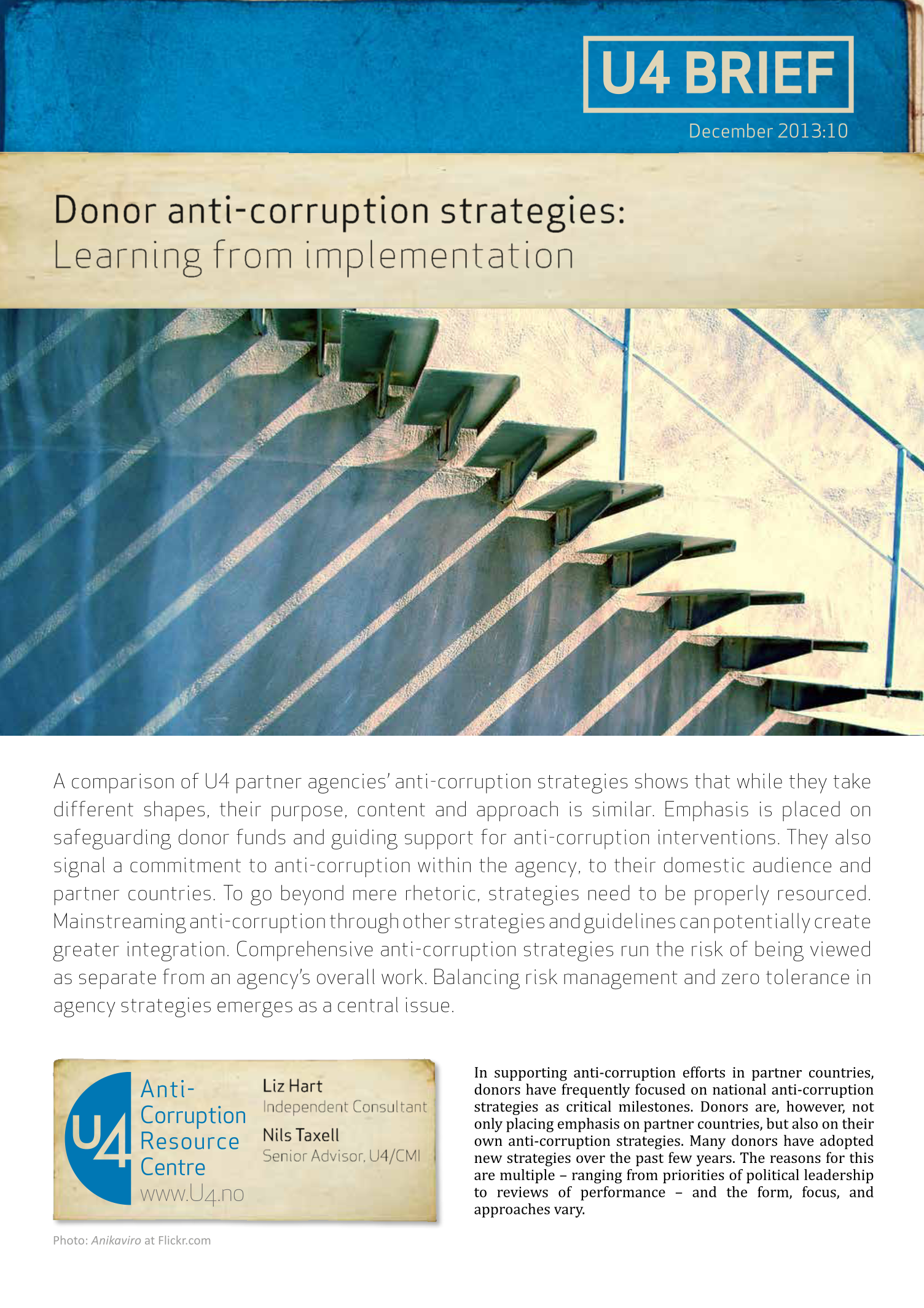U4 Brief
Donor anti-corruption strategies: Learning from implementation
A comparison of U4 partner agencies’ anti-corruption strategies shows that while they take different shapes, their purpose, content and approach is similar. Emphasis is placed on safeguarding donor funds and guiding support for anti-corruption interventions. They also signal a commitment to anti-corruption within the agency, to their domestic audience and partner countries. To go beyond mere rhetoric, strategies need to be properly resourced. Mainstreaming anti-corruption through other strategies and guidelines can potentially create greater integration. Comprehensive anti-corruption strategies run the risk of being viewed as separate from an agency’s overall work. Balancing risk management and zero tolerance in agency strategies emerges as a central issue.

Cite this publication
Taxell, N.; Hart, E. (2013) Donor anti-corruption strategies: Learning from implementation. Bergen: Chr. Michelsen Institute (U4 Brief 2013:10) 6 p
Disclaimer
All views in this text are the author(s)’, and may differ from the U4 partner agencies’ policies.
This work is licenced under a Creative Commons Attribution-NonCommercial-NoDerivatives 4.0 International licence (CC BY-NC-ND 4.0)


